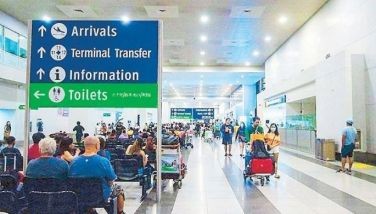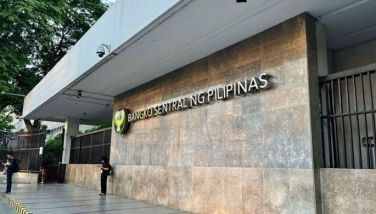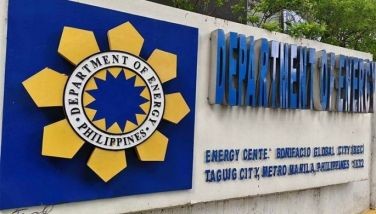Broadband for all

Access to a reliable broadband service is now a necessity like electricity and water. In this regard, Gapan City Mayor Emerson Pascual, should be commended for his decision to make the city government subsidize the internet connection of every household that needs it.
Mayor Pascual announced that the Gapan City government will provide a five Mbps internet connection at a subsidized rate of P50 a month. Mayor Pascual wants to help his constituents meet the digital challenges of our post coronavirus disease 2019 or Covid world which includes online learning.
National government officials should be as boldly forward looking as the Gapan mayor and accelerate programs to make broadband service available for everybody. The COVID-19 pandemic has made digital transformation a must and we are so unprepared for it.
Access to the internet and online resources ensures our people’s health and safety, Sen Ralph Recto pointed out last week. Indeed, he said, “in a country where activities are now preceded with words like ‘online’ or ‘tele-‘, internet is now a major utility and a basic right.”
Recto said the state of telemedicine, e-commerce, online learning and telecommuting in this country would depend on the state of its internet. He noted the huge backlog in public ICT projects.
The government’s free Wi-Fi program has been rolled out—687 out of 47,025 DepEd-run schools and 233 state- and local government-run colleges—and only 775 of free Wi-Fi hotspots are up and running in government hospitals and health centers, Recto added.
Recto cited a recent DICT report to the Senate that there are only 3,832 national government-installed Wi-Fi hotspots as of April this year, but the agency vowed to triple this to 10,069 by the end of the year. That is still below the original target of 34,236, the senator noted.
The pandemic, the senator pointed out, has also made the computerization of our schools “a very urgent homework for DepEd.”
“Pre-COVID 19, DepEd’s target was one e-classroom package per five sections of senior high school. At present, its best estimate is to have in stock one laptop or tablet for every 30 learners, and one laptop for every four teachers,” he said. He correctly pointed out that even if we have “universal tablet ownership”, it will still be limited by internet speed.
“If the Philippines ranks 110th for fixed broadband speed, and 121st for mobile internet speed out of 139 countries surveyed, then this is for telcos and government regulators to jointly hurdle,” Recto said.
Of course, Recto knows the telco duopoly will only go where their investments can earn good returns and ignore missionary areas. It is DICT that must focus on bringing so-called GIDAs or “geographically-isolated and disadvantageous areas” to the digital world.
“Kasama dito yung 7,144 ‘last mile schools’ na tinukoy ng DepEd. Ito yung mga eskwelahan sa malalayong lugar. The learners here belong to the disadvantaged side of the digital divide,” Recto said.
Sadly, 40 percent of Filipinos are not yet connected and many communities struggle just to get a stable 3G signal. This prevents many Filipinos from continuing their education, being productive amid mobility restrictions, and participating in the digital economy.
Congress can hasten our digital transformation by passing the “Open Access in Data Transmission” bill, filed as SBN 45 by Sen. Ralph Recto and HBN 47 by Rep. Victor Yap. The bill’s primary aim is to expand the country’s digital infrastructure by empowering even the smaller players to build and operate broadband networks, serve their communities, and connect the countryside.
The Open Access bill will help existing and new players deploy data transmission infrastructure. Right now, access to international satellites that can provide internet connectivity is reserved for telephone companies, an ancient rule that limits competition in the provision of broadband services. This has to change.
Students must now take classes online. Work from home will be more common. Businesses shift to online platforms was made necessary during the lockdown. Connectivity has become a lifeline for Filipinos.
Failure to address the country’s connectivity problems will leave millions of Filipinos without access to telemedicine, e-commerce, online learning, and telecommuting.
In any case, updating analog-era laws to make them relevant to the Digital Age is long overdue. The “Open Access in Data Transmission” bill will bring about the change in market structure required to encourage more market players to connect the unserved and underserved areas.
More competition for the telco giants will result in reliable, usable, and affordable internet that will connect schools, local hospitals, barangay halls and homes.
Ironically, it was Sen Recto who prevented the passage of the Open Access law in the last Congress. He cited national security concerns and did not agree with the proposal to remove the franchise requirement for broadband operators.
Recto also didn’t want foreign investors. That’s antiquated thinking that has resulted in foreign investors bypassing us for our neighbors. If he is afraid of Chinese investors, it is too late. China Telecom is powering the third telco of a Duterte crony.
This is precisely why we need to democratize satellite access. This will cut down the power of big telcos, including China Telecom.
As for the need for a franchise, the rule serves no public interest. It only increases costs to end consumers as these entities become milking cows of members of Congress.
The way it looks, the third telco will not be able to deliver as fast as promised. Even when it finally does, it will just join the existing telco duopoly in prioritizing service in commercialized areas. Open Access is our only immediate hope for better broadband service for all.
It is good to hear politicians call for better broadband. But they must go beyond talk.
Sen Recto seems to understand the need, but only time will tell how he behaves when the bill hits the Senate floor. Right now, the only public official who did something in his own little way to provide broadband for all his constituents is the mayor of Gapan, Nueva Ecija.
We need more leaders like him.
Boo Chanco’s e-mail address is [email protected]. Follow him on Twitter @boochanco
- Latest
- Trending





























